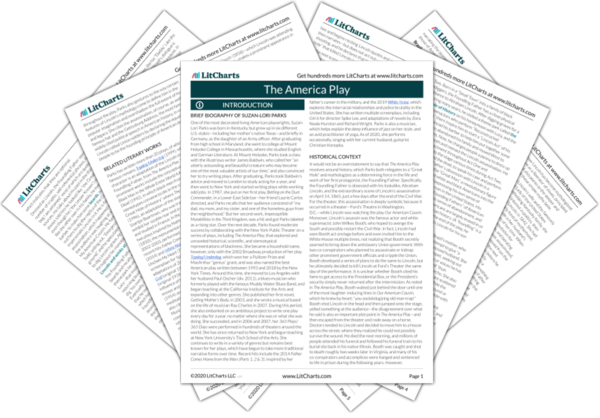As a professional mourner, Brazil knows how to rile up a funeral crowd and help people process loved ones’ deaths through techniques like “the Weep,” “the Sob,” and “the Moan.” In fact, the Foundling Father taught him these, along with the mysterious “Gnash.” Throughout Act Two, Brazil remembers “gnash[ing]” at funerals—once so hard that he “chipped uh tooth.” And at the end of the play, he resolves to “gnash” for the Foundling Father—although, when it comes time, his mother Lucy tells him to “save it for thuh guests” (who never arrive).
Although clearly the most powerful of Brazil’s mourning techniques, “the Gnash” is also likely unintelligible to most audiences. As elsewhere in this play, here Parks calls attention to the way certain private meanings can never be fully communicated, least of all onstage, by intentionally making her characters opaque. Family secrets are an example of such private knowledge, so while “the Gnash” shows how Brazil inherits his sense of identity and purpose from his father, his uncertainty about whether to “gnash” for his father also reveals their relationship’s underlying ambivalence.
The “gnash” is also a specific reference to a definite source: the Bible (specifically the Gospel of Matthew) repeatedly mentions people—specifically, those who are not chosen during the Second Coming—mourning through “weeping and gnashing of teeth.” By subtly putting The America Play in conversation with the New Testament, Parks both shows how her characters inherit the Christian tradition, as much as white people do, and draws a parallel between God’s abandonment of the unworthy and history’s abandonment of black families like Brazil’s. In fact, some scholars believe that this phrase was added later to Matthew, which makes “gnashing” a fitting addition to a play that emphasizes how history is constructed by those who remember and narrate it.








